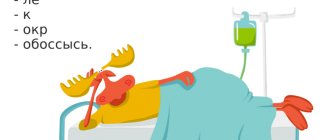Reverse psychology, or reverse psychology, is a popular way of manipulating an opponent, designed to help him “independently” make a decision that is beneficial to the manipulator. Using reverse psychology techniques, you can make a person think that he is making a rash purchase of his own free will or taking the “right” side, and is not succumbing to suggestion, brute coercion, persuasion or blackmail.
What is reverse psychology
Reverse psychology is reverse psychology or, as they say in scientific circles, paradoxical intervention. This is a series of psychological techniques that completely contradict the purposes of their use.
According to the techniques of reverse psychology, it is necessary to approve and reinforce those actions of a person that he wants to get rid of. And this reinforcement is considered the most effective way to change behavior. In the process of work, a paradox appears. The client is encouraged to behave in the same way as before, but to become better. Interesting, isn't it?
Paradoxical interference is an aspect of reverse psychology. During the session, the specialist offers a way to solve the patient’s problem, which, in theory, is not at all suitable for this situation. For example, for a person who is terrified of disgracing himself, a psychologist advises failing at something. Or for people who put everything off until later or procrastinate, he recommends setting aside 1 hour a day for procrastination.
Examples of using reverse psychology
Interestingly, even ordinary people use reverse psychology techniques. Most often this happens at the subconscious level. Remember how many times you forbade your child to do something? And he, showing all his stubbornness and independence, did the opposite? A wise move by mom and dad. After all, in the end, children still do what their parents needed.
Another example can be taken from romantic relationships. Imagine a woman who wants a man to marry her. It does not act directly, but comes from the opposite. He tells his partner that he doesn’t want to get married. And she doesn’t really need relationships, because they oblige and burden her with something. And at this very moment the owner’s instinct awakens in a man. Now he will do everything to make his woman change her mind. Wouldn't a real man allow her to enjoy such freedom?
Who does reverse psychology work for?
To effectively use the reverse psychology technique, you need to know who is more susceptible to psychological pressure. Types of people susceptible to manipulation:
- Rebels, hooligans. This type of people can be manipulated. Training lessons, instructions, advice are useless. A bully does the opposite to spite others. Behavior manifests itself in the actions of teenage children who are commanded by their parents. The child fundamentally does things against the will of the adult. But if a friend asks, the reaction will be positive.
- People who do things for the sake of fame, posturing. The individual will try to do everything contrary to the imposed, generally accepted principles. So he tries to stand out from the crowd. People of this type strive to achieve significant results in various areas of life and amuse their pride.
- People who do principled things. The type of individuals who go against existing principles, forgetting about the consequences.
Reverse psychology works great when applied to people who have a high ego bar. Those who have weak self-esteem are susceptible to the reverse effects of manipulation.
You need to understand that not everyone will do the opposite of what they are advised or told. Reverse psychology is useless for those who do not have their own point of view, they are used to following the advice of others. The practice of opposing actions will not have an effect on those who accept someone else's point of view and then present it as their own.
History of development
The theory of reversibility in psychology appeared in the 70s of the last century. Its creators are psychologists M. Apter and K. Smith. They published their research and conclusions in two works:
- “Subjective experience of motivation”;
- “Beyond personality traits. Reversible theory of motivation."
The main purpose of such psychology was the treatment of children suffering from schizophrenia. According to Apter, the theory he created helps to understand the duality of man. He cannot wish to perform two contradictory actions at the same time. Would you be willing to be in the desert and thirsty and give a bottle of water to a stranger who asked for help?
To force a person to do the right thing, to get the right reaction from him, you should follow 2 tips:
- First: conditions should be created in which it will be as convenient as possible to manipulate.
- Second: you need to create a plan of action that will encourage a person to move into a state suitable for manipulation and make a predetermined decision.
Who is amenable to reverse psychology methods?
According to psychotherapist Janet Raymond, the effectiveness of reverse psychology is influenced by a person's character and personality type. But relationships are not the least important. It is easier to work with those people who are ready to defend independence, freedom, and equality. They initially want to do what is prohibited. Who is most affected? There are 3 groups of people:
- children, teenagers;
- rebels by nature;
- those who suffer from low self-esteem.
Paradoxical intervention will not work on those people whose main character traits are calmness, straightforwardness, and conservatism. They are accustomed to acting as a person who is authoritative to them says. And therefore they will easily do what the manipulator says. But not the other way around.
Reverse psychology as a manipulative technique
The effect of reverse psychology as a manipulative technique is based on two main components. Firstly, formally it leaves the person at whom it is directed freedom of choice
. It is as if the person himself makes the decision [to act as the manipulator needs]. This helps to hide the very fact of manipulation, as well as to avoid the “recipient’s” rejection from the fact that someone else’s opinion is being imposed on him.
Secondly, formally a person is pushed to the opposite decision
, and in certain situations this is precisely what acts as an excellent incentive to do what they are supposedly asking not to do (or not to do what they are supposedly asking).
One classic example: sales consultants who say something like: “This product is too expensive, you won’t be able to afford it.
Let's look at cheaper options." The calculation is that the buyer’s hurt pride will force him to answer: “No, show me an expensive product” - and purchase it in order to prove his solvency (in his own eyes, in the eyes of the seller, other buyers, etc.). But of course, for reverse psychology to work as a manipulative technique, it must be used in the right situations and on the “right” people.
When is reverse psychology effective?
As stated above, reverse psychology methods are applicable in many areas. Let's look at some of them.
With kids
In this case, doing the opposite, of course, is not the best way to educate. But often you can’t do without it. This is especially true for adolescence. Children are stubborn, rebel, and deliberately do what their parents forbid. There are no threats, no caresses, no promises of reward here.
By showing independence in this way, children not only refuse to carry out instructions from mom and dad, but they also do the opposite. This is where reverse psychology comes into play. Suffice it to say that you will do everything yourself. The child will begin to get even angrier. After all, he understands that disobedience becomes even stronger. Therefore, only out of stubbornness will he do what adults need.
Between man and woman
Over time, problems appear in relationships. Most often they are associated with everyday life. Surely you are familiar with the situation when a wife unsuccessfully once again asks her husband to do some work. This continues for several days, then months. Quarrels and scandals follow.
Reverse psychology helps correct the situation. Don't get angry, don't throw out negative emotions. Calmly say that you understand the reasons for what is happening. Therefore, we decided to make our partner’s day easier by using the services of a specialist. Almost always, a person in this case feels guilty for his irresponsibility and does what he promised.
Sales
How to unobtrusively encourage a person to buy this or that product has already been discussed above. Consultants undergo special training, during which they learn to subtly manipulate the consciousness and emotions of a potential buyer. For example, when you are about to leave, they tell you casually that they have already wanted to buy this item. You have several feelings at once, including competition and greed. The seller's task is completed.
Reverse psychology between a man and a woman
Most couples use the practice of reverse psychology. The technique is used by a man or woman when they have a desire to get what they want. A woman wants to spend the weekend with her fiancé, but he is focused on spending it with friends. She is convinced that the direct form is useless and is going to act radically. She tells him that she is going to a club with her friends. In most cases, the groom will stay at home, refusing to let her go alone.
You can use the reverse manipulation technique if you want to marry your loved one. You can’t admit your plans, try to show the guy, it’s better to show that the girl is happy alone. Then the man will strive to keep the girl busy in order to avoid the appearance of competitors. When choosing a tactic, you need to know your loved one well. If there is a lack of information, a mistake made can destroy a relationship.
Methods of confrontation
It's not easy to avoid falling for the tricks of reverse psychology. To do this, you must learn to control your emotions. If you suddenly realize that, guided by them, you are making a completely logical decision, stop. Perhaps you are simply being taken “weakly”.
It’s also worth thinking about if you have the feeling that you are acting in spite of someone’s words, requests, or suggestions. Put off making a decision until later. Wait for the emotions to subside. Only after this, reconsider all the pros and cons and make a choice.
If you have felt the effects of reverse psychology on yourself, do not rush to label your interlocutor as a manipulator. Remember that this behavior may be unconscious. But still stay alert.
Books about reverse psychology
The books of the creator of reverse psychology, M. Apter, have already been mentioned above. There are other works:
- E. Bern, "People who play games." The plot is based on the relationship in the triangle: adult – child – parent. The author argues that at different periods of time, each participant changes the role. Understanding this helps to build harmonious relationships with people around you.
- E. Berne “Games People Play.” Unusual edition. More than 100 games are presented to the reader that people will play with you throughout their lives. You will not only learn the rules. The author will help you successfully get out of the influence of a manipulator.
Books like these will only help if you apply the advice from them in life. Otherwise, knowledge will be useless.
How to avoid falling for the tricks of manipulators?
One of the influence techniques is based on psychological resistance - the “deficit principle”. A shortage or something inaccessible automatically appears more valuable to a person and only increases his desire to obtain the scarce item. Marketers use this. For example, they announce discounts for first buyers, short-term promotions, or “only for their own” offers. It has been noticed that buyers are more willing to buy a product if they know that its quantity is limited.
The main task of the manipulator is to evoke violent emotions in the opponent and destabilize his emotional state, in which he begins to act irrationally . Therefore, advice for those who want to learn to resist manipulation is complex and simple at the same time: do not give in to emotions. Although it seems easier said than done. How to proceed?
The first and most important thing is to take your time . The manipulator throws a hook and waits for the opponent’s reaction - as soon as he enters into dialogue, the game already goes to the manipulator’s field. And the best way to escape from being hit is to take a break. Don’t answer, don’t argue, don’t expose yourself to the next blow, but take a break and give yourself time to think about everything. You can do this elegantly and discreetly in different ways:
Distract yourself from everyday details with phrases:
- I got something in my eye.
- I have a sore throat, I’ll drink some water now.
- Something is blowing, I’ll close the door now and continue the conversation.
Physically leave the interaction space:
- Drastically change your position: stand up, walk, bend over to tie a shoelace.
- Start looking in your bag, pocket or on the table for papers, a phone, a pen - whatever.
- Say that you urgently need to respond to an SMS or message on your communicator.











